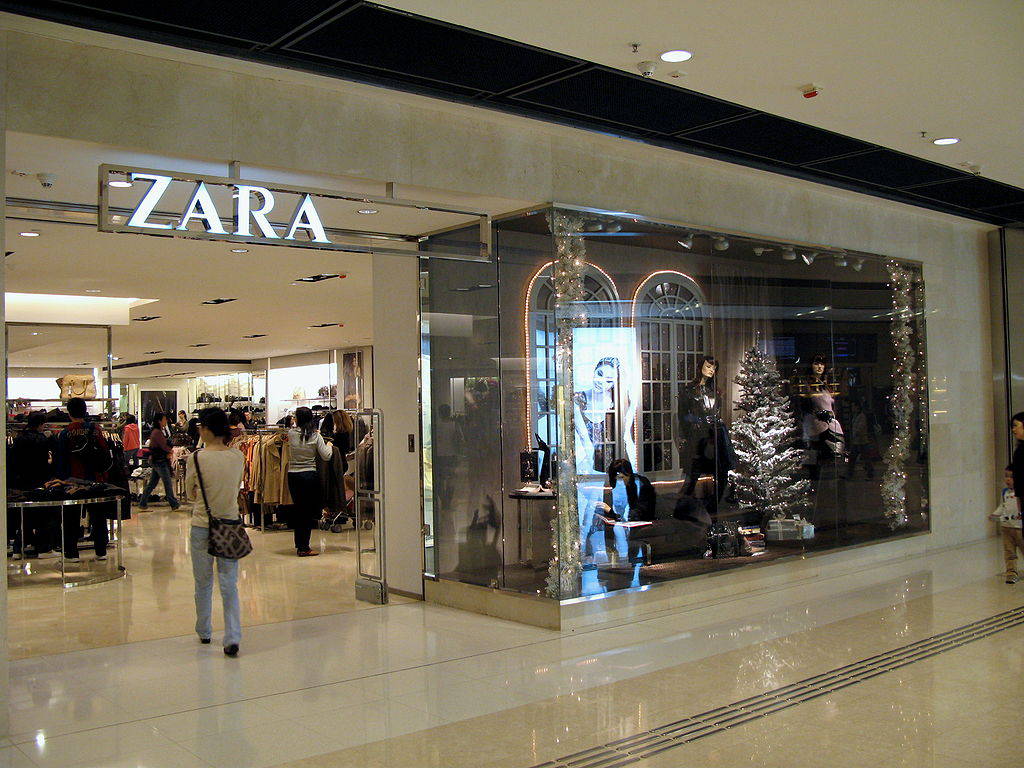[Photograph by WiNG under Creative Commons]
Are you able to influence your customers to behave the way you want them to? The answer for most of us would be in the negative.
There's a solution to this vexing problem: embed principles of behavioural science into your business and then sit back and reap rich dividends.
Behavioural science seeks to understand why customers behave the way they do and more importantly, what influences their behaviour. Once we gain an understanding into this, we can get our customers to behave the way we want them to - of their own volition and at near zero cost.
Watch a video of this episode or continue reading
Episode 15: New Rules of Business
Leading enterprises like Zara, The Economist, OnePlus, Sensodyne, several retail stores, Bagpiper whisky, Amazon and Starbucks have embedded the principles of behavioural science into their business and are reaping the rewards.
Zara, the global fashion house, introduced the world to 'fast fashion'. It launches hundreds of designs every year, but manufactures each of them in limited quantity so that they sell out fast. Since the prices are extremely attractive and the designs are awe inspiring, there is always a rush to buy the designs put out by Zara. So if a customer postpones buying a design, it is unlikely to be available later. Zara has intelligently put the behavioural science principle of 'loss aversion' into play - we fear losses twice as much as we covet a similar gain. Loss aversion is built into our DNA through the evolutionary process. When our forefathers lived in the jungle, survival, not prosperity, was their main focus. That instinct continues to drive us today. Result: in a Zara store, a buying decision is unlikely to be postponed.
The Economist is arguably regarded as an intelligent person’s best companion. For its subscription offer potential subscribers have three options:
-
Digital: 12 weeks for Rs 750
-
Print + Digital: 12 weeks for Rs 900
-
Print: 12 weeks for Rs 750
What is the purpose of putting the digital subscription offer? It is a decoy that is strategically placed to make subscribers believe that the combined 'print + digital' offer priced at Rs 900 is a good deal - the price should be Rs 1,500 but the combined offer is available for only Rs 900! And when you see a good deal, can you refuse it? Of course not!
OnePlus is one of the most exciting brands to emerge in the smartphone market from China. It has an easy-to-say Western name, unlike Xiaomi, and is focused on getting customers from outside China. Unlike other smartphones, which are available in retail stores or online, OnePlus is sold only through invites. With this strategy, OnePlus is putting into play the behavioural science principle of 'scarcity effect'. When something is scarce, it automatically becomes desirable. Since OnePlus is available by invitation only, it is scarce and therefore it has the potential of becoming desirable. Potential users are asking their friends for an invite. See what I mean? Now instead of the company running after customers, the customers are running after the brand - in this case by trying to source the invite which would make them eligible for OnePlus.
Sensodyne has made inroads into the toothpaste market. It has a real doctor recommending the brand. By following this strategy, Sensodyne has put into play the behavioural science principle of 'expert bias': we tend to be persuaded more by an expert than by a layperson. In this case, because a doctor is recommending it, we get positively persuaded by their recommendation and end up buying the brand.
E-commerce companies come up with tantalizing offers promising the moon to their customers. But next to these offers they put a starburst that informs the potential buyer, 'only for one day'. Or take airlines selling seats online. Next to the attractive offer they inform the fliers, 'only two seats left'. Words like 'only', 'just', 'limited', 'sale', 'now' are referred to as hot buttons in behavioural science and are used to evoke in us the 'fear of regret'. When a customer sees an attractive deal, she is compelled to buy immediately for fear of regretting it later, as the deal may not be available then. But if she goes to the site two days later, she will still find that there are 'only two seats left'. Hot buttons make us behave irrationally and we end up buying brands we do not need!
Bagpiper was India's largest selling whisky when I was entrusted with the responsibility of nurturing it. With great pride we advertised it as 'India's largest selling whisky'. The reason behind making this claim was to evoke in drinkers the behavioural science principle of 'social proof'. When potential drinkers are informed that Bagpiper is India’s largest selling whisky, they feel that a large number of people must be patronizing it and so many people cannot be wrong in their choice, therefore, it must be a good product. Buoyed by this confidence, more and more customers end up trying it!
Amazon introduced Prime, an annual membership programme for a fee of $99, which entitles its subscribers to free two-day shipping. Prime became one of Amazon's key drivers of revenue growth. Why? The answer lies in the behavioural science concept of ‘sunk cost fallacy’. A customer who has paid the $99 to become a member feels that the expense has become a sunk cost - a cost that has been incurred by her and is now a dead investment. And this triggers her to behave irrationally. Anytime she has to buy anything she opts to buy from Amazon merely to recover the sunk cost. Result: Much to Amazon's delight, it notices that a Prime member spends two times more than a non-Prime member.
Starbucks introduced its range of coffees at absolute luxury pricing. To ensure that customers do not get a shock they de-anchored the price. Here’s how it goes. Customers have a price band in mind for the three sizes in which coffee is normally available in stores - small, medium and large. Now if Starbucks had also called its three sizes of offering small, medium and large but charged "Starbucks price" (read super premium price), it would have caused enormous pain to its customers. Many would have walked away from the stores deeming it to be prohibitively expensive. So, Starbucks decided to refer to the three sizes as
-
Tall for Small
-
Grande for Medium
-
Venti for Large
When a customer looked at the menu and opted for Venti she had no idea what size of coffee she was ordering. And therefore, she had no idea what she had to pay for it. Being totally de-anchored, she accepted the price asked for Venti.
Inbox by Google: Gmail has introduced Inbox with the strategic intent of revitalizing itself. Inbox is currently available ‘by invite only'. With this strategy, Google is putting into play the behavioural science principle of scarcity effect. When something is scarce, it automatically becomes desirable. Since Inbox is available by invite only, it is scarce and therefore desirable. Potential users are asking their friends for an invite. The benefit to Gmail: instead of Inbox running after users, it is users who are running after it. In the process, it will incur near zero cost in advertising and sales promotion, customer acquisition and lead generation. Result: a healthy bottom line.
A caveat: there are ethical and moral issues associated with deploying principles of behavioural science, because we are seeking to influence people’s behaviour without them being aware of it. It may happen that we make them buy products they do not need! So, exercise caution and take a pledge that you will not manipulate your customers’ behaviour merely for personal gain.
If you have any questions mail us at askrajesh@foundingfuel.com
[An abridged version of this article appeared in Mint]


